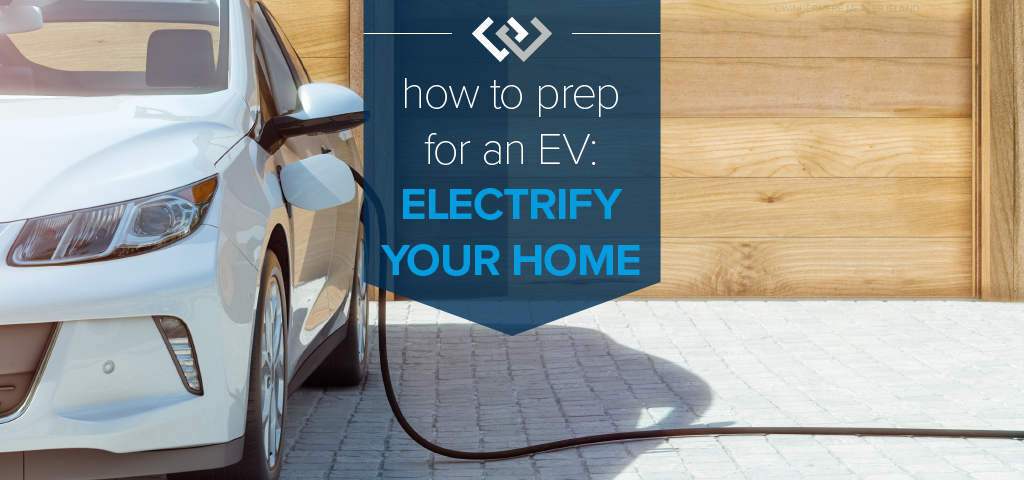Cut the Clutter: Donation & Recycling Locations Around the Sound

Spring is coming, and with it comes a chance to clear out the old and start fresh—whether it’s those ever-growing piles in your garage and attic, that closet you can barely close, or a horror-movie-inspired basement. Here are resources to reclaim your space and put your unwanted items to good use (or recycle and give them their own fresh start)…
Donations | Recycling | Disposal
Donations
CHILDREN’S HOSPITAL BARGAIN BOUTIQUE
Furniture/furnishings, jewelry, antiques, collectibles, and new or gently used men’s, women’s or children’s clothing. Be sure to check items they don’t accept.
seattlechildrens.org/giving/bargain-boutiques
Estates: (206) 327-3067
Vehicles: (888) 205-8941
Bainbridge Island: 1050 Hildebrand Lane, Suite G-1 | Bainbridge Island, WA 98110 | (206) 842-5567
Olympia: 2020 Harrison Ave. NW | Olympia, WA 98502-5097 | (360) 236-8245
GOODWILL
Accepts donations of a wide range of items, from exercise equipment, to clothes and home decor items and furniture. Net proceeds help fund job training and education programs.
evergreengoodwill.org/donate-goods
KIDVANTAGE
Donate your quality used children’s clothing, shoes, baby gear, toys, books, bedding, and maternity clothing. You’ll help to fill the nearly 4,000 orders of essentials that they provide to underprivileged children and expectant moms each week.
Issaquah: 1510 NW Maple St. | Issaquah, WA 98027 | (425) 865-0234
Shoreline: 17230 12th Ave NE | Shoreline, WA 98155 | (425) 209-1136
Bremerton: 1463 NE Dawn Road, Suite B | Bremerton, WA 98311 | (360) 616-0235
MARY’S PLACE
Gratefully accepts gently used clothing, luggage, twin size sheets/blankets, paperback books, and small household items (dishware, utensils, mugs, and small appliances such as microwaves) to distribute to families in need.
marysplaceseattle.org/get-involved/share-your-stuff
Donation Center: 4521 6th Ave S. | Seattle, WA 98108
Shelter (small donations only): 720 Blanchard St, Seattle
NORTHWEST CENTER
Big Blue Trucks accept clothing, household goods, sporting goods, tools, toys & more to support people with disabilities. Here’s what they do and don’t take.
bigbluetruck.org/drop-off-locations
NORTHWEST FURNITURE BANK
Furniture bank for homeless families in transition in South King County and Pierce County. Here’s what they accept and you can arrange a pickup if you live within a 25 mile radius of Tacoma.
117 Puyallup Ave | Tacoma, WA 98421 | 253-302-3868
SAINT FRANCIS HOUSE
Accepts clean, gently used clothing for men, women & children as well as kitchen & household items. All donations are passed on directly to those in need.
stfrancishouseseattle.org/support-us
169 12th Ave | Seattle, WA 98122 | 206-268-0784
SAINT VINCENT DE PAUL
Drop off your sorted donations of gently used clothing, housewares, toys, shoes/accessories, linens, books, and electronics to one of their thrift stores (here’s what they don’t accept). $0.89 of every dollar funds programs that provide neighbors with food, clothing, eviction prevention, case management, and more.
SEATTLE’S UNION GOSPEL MISSION
Accepts food, clothing, furniture, vehicles & housewares in their mission to support our homeless neighbors.
Distribution Center: 8226 South 208th Street, Suite G110 | Kent, WA 98032 | (206) 723-5700
Furniture Pick-Up: (507) 593-7024
Recycling/Disposal
E-CYCLE WASHINGTON
WA Department of Ecology’s free program for residents to recycle electronics (including TVs, computers, monitors, tablets, & more), with participating locations across the state.
FRIENDLY EARTH
Free recycling of electronics, flat screen TVs/monitors, appliances, BBQs, computers, lawn equipment/tractors, motorcycles, & more! Recycling with a fee for copiers/printers, refrigerators, A/C units, solar panels, & large rear-projection TVs. Paid data destruction available as well. Get the full scoop here.
1560 1st Ave S. | Seattle, WA 98134
(206) 367-4111
ONE GREEN PLANET
Free recycling of electronics, computers, copiers, printers, ink/toner, appliances, bikes/scooters, scrap metal, machinery, phones/chargers, & more. Recycling with a fee for appliances containing Freon, flat screen TVs, tapes/CDs/floppy disks, alkaline batteries, & X-ray film. Here’s the full list.
851 Houser Way North, Suite B | Renton, WA 98057
(425) 996-3513
RECOLOGY
With a zero waste goal, Recology stores accept hard to recycle items like CFL light bulbs, household batteries, hard-cover books, small electronics/appliances, block Styrofoam, and bicycles. Here’s the fee list for non-customers (if you’re already signed up for their curbside service, you can drop off limited quantities for free).
Issaquah: 317 NW Gilman Blvd, #22 | Issaquah, WA 98027
Highline: 15858 First Avenue S, #A100 | Burien, WA 98148
Shoreline: 15235 Aurora Ave. N | Shoreline, WA 98133
RUBBISH WORKS
Removal of nonhazardous materials for eco-friendly disposal—up to 50% of hauled away materials are recycled and the rest is donated when possible.
(888) 594-5078

Find a Home | Sell Your Home | Property Research
Neighborhoods | Market Reports | Our Team
We earn the trust and loyalty of our brokers and clients by doing real estate exceptionally well. The leader in our market, we deliver client-focused service in an authentic, collaborative, and transparent manner and with the unmatched knowledge and expertise that comes from decades of experience.
2737 77th Ave SE, Mercer Island, WA 98040 | (206) 232-0446
mercerisland@windermere.com
© Copyright 2025, Windermere Real Estate/Mercer Island.
Preparing Your Garage for an Electric Car

Electric cars help lower emissions and fuel costs, improve fuel economy, and bolster energy security. And considering the volatility of gas prices—and their general skyward trajectory—electric fuel shows promise as an economic alternative.
But switching to an electric vehicle entails more than new driving habits and a conversation piece with strangers. It’s also a lifestyle update.
From setting up a charging station in the garage to maintaining optimal temperatures therein, check out these useful garage preparation tips to assure your electric vehicle battery is in tip-top shape.
Selecting a Charger: Level 1 vs. Level 2
Unfortunately, charging an electric vehicle might be a tad more involved than charging your smartphone. And unless you own a Tesla Model X, which can travel upwards of 300 miles on one charge, your electric plug-in vehicle could benefit greatly from a home station charger. That said, make sure you familiarize yourself with the two main levels of electric vehicle chargers supplied by home-based charging equipment and most public charging stations.

Level 1 Chargers
A Level 1 cord set charger delivers a standard household current of 110 or 120 volts and comes with most plug-in vehicles upon purchase. It’s outfitted with a three-pronged, household plug at one end that’s connected to a control box by a short cord. A longer 15-to-20-foot cord running from the other side of the box connects directly to the vehicle itself.
- If time is not of the essence, a Level 1 could be the way to go. But be forewarned: What you get is, more or less, a trickle charge that affords roughly three to five miles per charging hour. For instance, the Nissan Leaf takes around 24 hours to fully charge on a standard 120-volt household outlet.
- The upside is, Level 1 equipment doesn’t entail an elaborate setup of high-power circuit breakers or dedicated electrical lines, which are required by major appliances and Level 2 chargers.
- Because cord sets are portable, plug-in vehicles can be charged virtually anywhere there’s a standard outlet, provided it isn’t a household outlet that’s patched into the same circuit as other demanding appliances—in which case the excess amperage could trip a circuit breaker.

Level 2 Chargers
If time is of the essence, consider installing a Level 2 charger, which delivers 240 volts and replenishes pure electric vehicles in about three hours—which is about seven to eight times faster than Level 1 equipment. Unlike the simplicity of Level 1 setups, though, Level 2 chargers will warrant the services of a professional due to the rigmarole of electrical codes, equipment setup, and necessary inspections.
- Level 2 chargers cost anywhere between under $300 to over $1500, the price ultimately depending on cord length and amperage.
- Level 2 outputs typically range between 16 to 30 amps, but professionals often recommend around 30- to 40-amp systems—an adequate overnight charge for most plug-in electric cars.

Installing a Charging Station
It’s worth mentioning that the “charger” you’re installing is technically referred to as Electric Vehicle Service Equipment (EVSE). This is the wall-mounted box with cord and plug that delivers electricity and functions as a communication and safety unit for the actual charger situated inside the vehicle itself. The EVSE ensures the battery doesn’t overheat and shuts the charging session down if there’s a short circuit, power surge, or any other type of faulty hardware.
If you’ve opted for a Level 2 ESVE, you’ll likely need to reach out to a professional electrician to wire up equipment and determine where the ESVE should be situated in regards to where your vehicle is parked. Notwithstanding factors like outdated wiring, meters, and breaker panels, updating the garage for your electric ride should actually be pretty straightforward.
In rare instances, old wiring may need to be replaced. But by and large, the process is fairly easy and uncomplicated. What’s more, the plug itself isn’t any more difficult to install than a standard dryer outlet. For electric vehicle owners, installing a Level 2 ESVE is definitely the way to go.
Cost of Installation
The installation cost generally hinges on the work involved—such as the amount of wire that needs to be run, whether additional or replacement breaker panels are necessary, and the cost of labor in your area. This could vary between just a few hundred dollars to a couple thousand. However, you may be able to snag special rates from your utility company for installing an EVSE, so make sure you inquire.
Maintain Optimal Charging Temperatures
Even in the Seattle area, temps regularly drop below freezing in the winter. Recent studies suggest that charging time increases significantly as the weather goes down. If your garage is currently unheated and you want to keep charging time to a minimum, consider these tips from Family Handyman on the best ways to add a heating system.
Find a Home | Sell Your Home | Property Research | Neighborhoods | Market Reports | Our Team
We earn the trust and loyalty of our brokers and clients by doing real estate exceptionally well. The leader in our market, we deliver client-focused service in an authentic, collaborative and transparent manner and with the unmatched knowledge and expertise that comes from decades of experience.
© Copyright 2019 Windermere Mercer Island.

 Facebook
Facebook
 X
X
 Pinterest
Pinterest
 Copy Link
Copy Link

